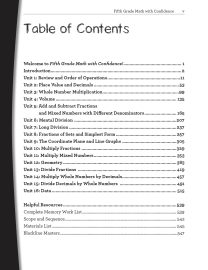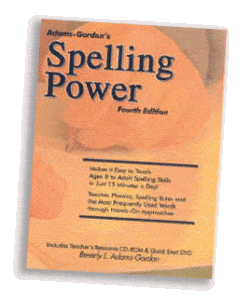
Sometimes, children who have difficulty learning are just immature and need a little time to grow. Or disinterested, and need a new teaching approach. Or tired, and need a break.
But when learning difficulties continue, you may be dealing with a child who is “non-neurotypical.”
“Neurotypical” is a newly invented word, originally was used for anyone who wasn’t on the autism spectrum, but now widely used by many home educators to mean (more or less) that you’re cognitively, intellectually, and developmentally “normal.”
There are many non-neurotypical students out there: dyslexic, dysgraphic, dyscalculic (unable to process numeric information normally), twice-exceptional (gifted in one area and struggling hard in another), dealing with processing difficulties, seizure disorders, autism, and other difficulties. In fact, as one home-schooling parent remarked to us, the home-education population may have more non-neurotypical kids in it than the general school population, because the frustrations of dealing with these problems in a classroom situation causes many parents to turn to home schooling.
When should you suspect “non-neurotypical” patterns and look for professional evaluation?
Preschool and kindergarten children who are normally compliant and enjoy other “schoolish” activities, but who throw tantrums or weep when faced with reading, are signaling that something is wrong. Speech delay (by age three, a child should be using phrases longer than two words on a regular basis; by four, complete sentences; your pediatrician can provide you with the standard benchmarks) can point to hearing or processing problems. Lack of interest in reading combined with physical signs such as inability to hold a crayon, catch a ball, or do up buttons can signal a developmental difficulty. Inability to recognize the alphabet by age five is a warning sign.
In these cases, get both eyesight and hearing evaluated first. If the physical findings are normal, consider an evaluation by a neuropsychologist or other qualified professional.
If, by the end of first grade, your student is still struggling to understand how reading works, we would suggest professional evaluation particularly if this struggle is accompanied by an inability to grasp basic spelling principles, trouble following verbal directions, and lack of coordination.
You may be dealing with a learning disability, or simply a slow-maturing reader—in which case you may just need to be patient. But it’s better to rule out dyslexia early, rather than to lose months or years of learning time to frustration.
Children who are still struggling with simple copywork at the end of first grade, or who still have difficulty with one-sentence narrations by the end of second grade, should be evaluated by a professional—particularly if these difficulties are combined with very slow reading progress. Difficulty in writing can be a pointer to dyslexia; it can also be a sign of dysgraphia (a “transcription disability” that affects the student’s ability to translate oral language into written language).
There may be a very clear physical cause for learning difficulties: we’ve heard from parents who discovered, well into their child’s teenage years, that the child was actually suffering from a degree of mild cerebral palsy, deafness, or difficult-to-diagnose vision problems. But all learning difficulties can be better dealt with once they’re labeled. “It is the fact that we finally got a label,” another mother wrote to us, “combined with the specifics of testing, that makes me now able to help my child. I know when to ease up on him, when to accommodate and when it is okay to push. Without the label I was always pushing him beyond his capabilities. I am sure he felt helpless and inadequate and he didn’t even know why. His ‘label’ has made him a happier kid and given him parents who are better informed and therefore better teachers and advocates. Labels can be beautiful.”
So don’t delay for years if you sense that your child is not progressing normally. “My biggest regret,” one parent told us, “is that I listened to the ‘he’s just a late bloomer’ voices instead of listening to my intuition. We lost a few years of remedial academics because of the wait-and-see approach.”
Hundreds of parents have shared their experiences in answer to our question, “When did you decide to have your child evaluated?”
Visit our Well-Trained Mind Learning Challenges board for more support, ideas, and feedback.
Recommended Products
-

Juneteenth Booklist & Activities
0 out of 5$0.00 Add to cart -


Fifth Grade Math with Confidence Instructor Guide
0 out of 5Starting at:$36.95Original price was: $36.95.$27.71Current price is: $27.71. Select options -
Sale!

Hansel & Gretel and Other Stories: Downloadable MP3
0 out of 5$12.95Original price was: $12.95.$9.71Current price is: $9.71. Add to cart -
Sale!

Dorothy and the Wizard in Oz: Downloadable MP3
0 out of 5$25.95Original price was: $25.95.$19.46Current price is: $19.46. Add to cart -
 Sale!
Sale!

Fifth Grade Math with Confidence Student Workbook B
0 out of 5$16.46 – $21.56 Select options This product has multiple variants. The options may be chosen on the product page -
 Sale!
Sale!

Fifth Grade Math with Confidence Student Workbook A
0 out of 5$16.46 – $21.56 Select options This product has multiple variants. The options may be chosen on the product page
ABOUT THE AUTHOR
Susan Wise Bauer
Join over 100,000 homeschooling families
For the latest offers, educational insights, products and more.
By joining you agree to our privacy policy.



















3 thoughts on “When Should I Get My Child Evaluated?”
Unfortunately, the homeschooling community is plagued with advice that reading happens naturally, that children learn when they are ready and that it is common for boys to read much later. I routinely see other mothers scolding mothers who reach out and ask for resources online. I regret listening to this advice and struggled with my middle son for 3 years of painful phonics instruction. I wish I had sought out an evaluation sooner and not waited until he was 9 years old and had developed such frustration and disappointment, especially because he is very thoughtful and intelligent and loves learning.
It would be good to talk about how and where to have evaluations done. Other questions that I have: what do they include, how much do they cost and who is qualified to do evaluations?
The cost and procedure of evaluations varies tremendously by location. You usually get them done either through your local school, in which case they can offer information, or privately. For private evaluations, the process most often starts with your pediatrician, because referrals are usually required. Then you would have to check with your insurance for estimated costs. It is often a tedious process. It can take a long time to get appointments, so inquiring sooner rather than later is generally better. You can always cancel appointments if it turns out you don’t need them.